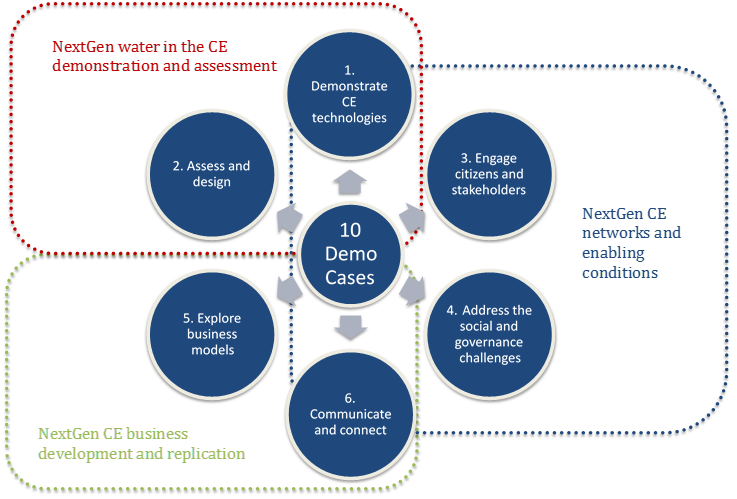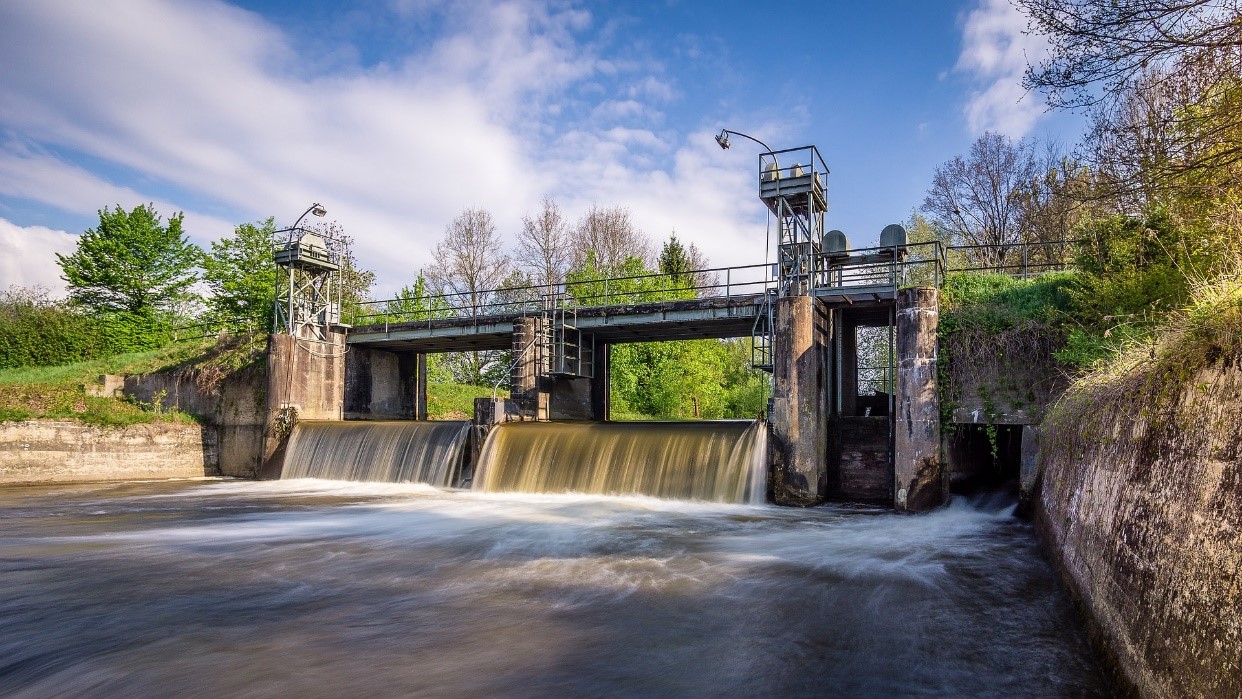NextGen will demonstrate innovative technological, business and governance solutions for water in the circular economy in ten high-profile, large-scale, demonstration cases across Europe, and we will develop the necessary approaches, tools and partnerships, to transfer and upscale.
Project outline
This is a Horizon 2020 Framework Programme coordinated by KWR (Netherlands) that includes 30 partners, 3 associate partners and 10 demonstration cases. The project will look at demonstrating different technologies with a potential to contribute to reuse and recovery of important resources within a perspective of circular economy. These resources include:
Water: reuse at multiple scales supported by nature-based storage, optimal management strategies, advanced treatment technologies, engineered ecosystems and compact/mobile/scalable systems
Energy: combined water-energy management, treatment plants as energy factories, water-enabled heat transfer, storage and recovery for allied industries and commercial sectors
Materials: nutrient mining and reuse, manufacturing new products from waste streams, regenerating and repurposing membranes to reduce water reuse costs, and producing activated carbon from sludge to minimise costs of micro-pollutant removal.
Together with the Institute for Policy Research, we will examine the regulatory and policy frameworks that impact on circular water systems and services, at all steps in the value chain. The main purpose is to identify enablers for, and barriers to, creating synergies within the value chain, up-scaling solutions and transferring them to other geographic areas.
Science

WIRC will be researching new approaches and best practices for closing the energy cycle in the water sector as well as reporting on challenges and opportunities across policy and regulatory frameworks around the uptake of circular solutions. WIRC is also involved with the Filton Airfield development site, where different approaches will be demonstrated such as integrated local recovery and reuse of water, energy and nutrients; drainage integration in green spaces, increasing biodiversity; recovery of thermal energy from domestic wastewater; anaerobic digestion; nutrient recovery and local reuse.
This is an excellent opportunity to develop unique perspectives on aspects of Water in the Circular Economy at a multidisciplinary level and to translate them directly into practice across the 10 different demonstration sites.
Impact
In addition to project reports and scientific publications, the key impact of this project are the demonstration sites and the visibility that the new deployed technologies will have both in EU countries and in emerging economies. There is also the expectation that by deploying these new technologies a significant reduction in energy, cost, freshwater, raw materials can be achieved. When needed, adaptations to regulations will be proposed, to enable new mechanisms that can work within the existing regulatory frameworks and to provide input to future European legislation. Finally, through the deployment of citizen involvement strategies (serious games etc.) and the analysis of economic and political bottlenecks that the technological advances can be supported by evidence-based social, economic and political mechanisms (e.g., news articles and policy briefs).
